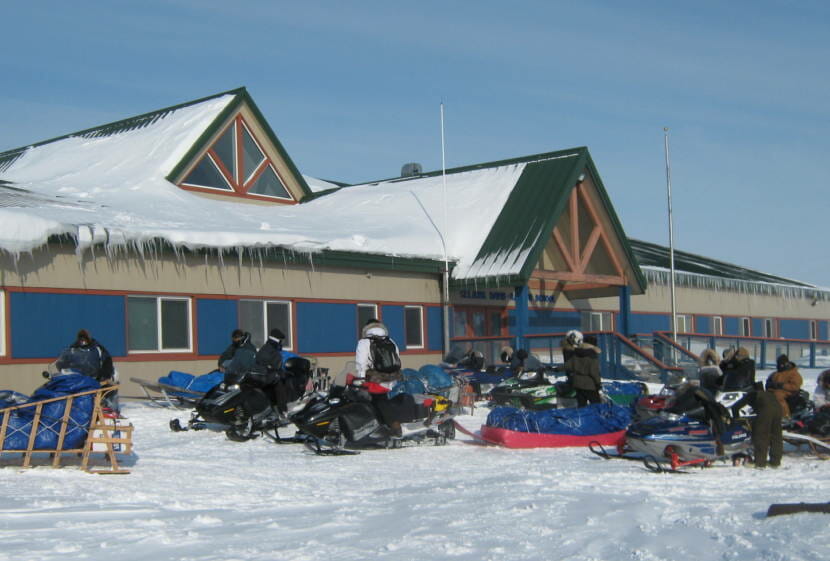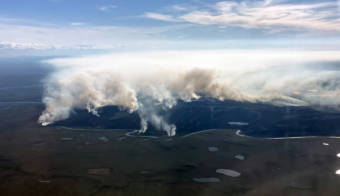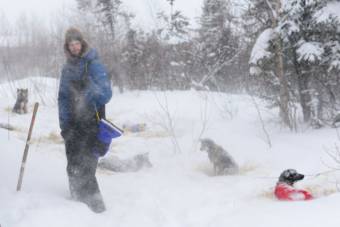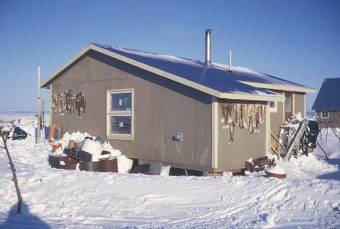
Several weeks after an outage knocked out power in the Northwest Arctic village of Selawik, officials say it has been restored. However, the outage has exacerbated chronic problems at the local water treatment plant.
On Febr. 14, the diesel generators went out in Selawik, knocking out power at the school, dozens of homes and — perhaps most critically — the village’s water treatment plant. As local, regional and state officials worked to solve the issue, the community of roughly 800 people was without running water and had to conserve power, relying on back-up generators while power was slowly restored.
Tribal administrator Tanya Ballot said officials don’t know for sure what the cause was, but she suspects wear and tear on the engines.
“Just like any regular engine, if it’s not maintained properly it doesn’t work. So that may have been the problem,” Ballot said.
Having power issues during any time of year would be rough on the village, which is about 90 miles east of Kotzebue, but Ballot said the winter weather is making things tougher.
“Mother Nature is not helping us right now,” Ballot said. “It’s 17, 18 below with a 50 below wind chill factor today. We have been cold for the last two weeks.”
Ballot said power was restored to two of three engines this week, and the community no longer has to conserve power or boil water. However, she said the power was out for so long, that serious damage was done.
“Having the power restored a little late was detrimental to the water treatment plant,” Ballot said. “Those lines had a chain effect and froze so far, that we’re still not thawed out today.”
Ballot said community members now have to haul their water from the water treatment plant to their homes, instead of being able to rely on their pipes or water taps. She said it’s led to a lot of frustration among residents.
“They’re right in their frustrations because we’ve become accustomed to having running water out of a tap, and being able to flush our dishwater down a drain, and our bath water and our toilet water and whatever else is in a toilet down the drain,” Ballot said. “And it makes more work for us to haul it out and pack it in and empty it out in a bucket. And it’s not sanitary.”
Ballot said she’s concerned that the lack of clean water could have other, less obvious consequences.
“We’ve seen increased illnesses and skin problems because people aren’t able to stay as clean as we’re used to,” Ballot said. “Attendance at school may or may not be affected because students don’t want to go to school with dirty clothes or smelling stinky. So it really has a bigger effect on us than we think.”
Having frozen pipes isn’t a new problem in Selawik. Ballot said long-term issues at the 30-year-old water system have persisted for years.
“We keep putting band aid fixes on it that don’t seem to stick,” Ballot said. “And we need a complete overhaul of this system. And parts are not cheap.”
Ballot said they need new motors, which cost about $26,000. Additionally, they need a new water pump which costs about $5,000.
“We don’t have that kind of funding in our pocket,” Ballot said. “So we’re going to be putting through some applications. We’re going to request for state funding, emergency funding to try to help get these necessary parts. Above-ground water and sewer is very, very… it’s a challenge to maintain.”
Ballot said the village has seen a lot of support from surrounding communities, including parts from the Alaska Native Tribal Health Consortium, water donations from the Kiana AC store, and emergency assistance from NANA Regional Native Corporation and the Northwest Arctic Borough.
“I feel very fortunate that all these folks are contributing and helping us, and I wish the same for Ambler,” Ballot said. “I understand Ambler is going through the same problem with water and sewer. And Unalakleet, and Tuluksak.”
Ballot said she’s hopeful that the impending spring weather will help thaw some of the pipes, making running water more accessible in town, though she said it’s “taking its sweet time.”



